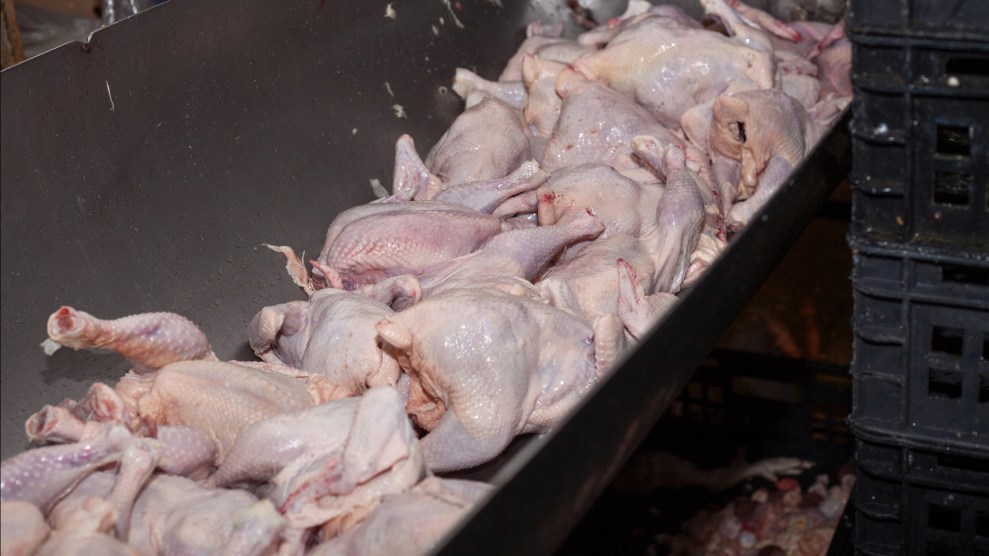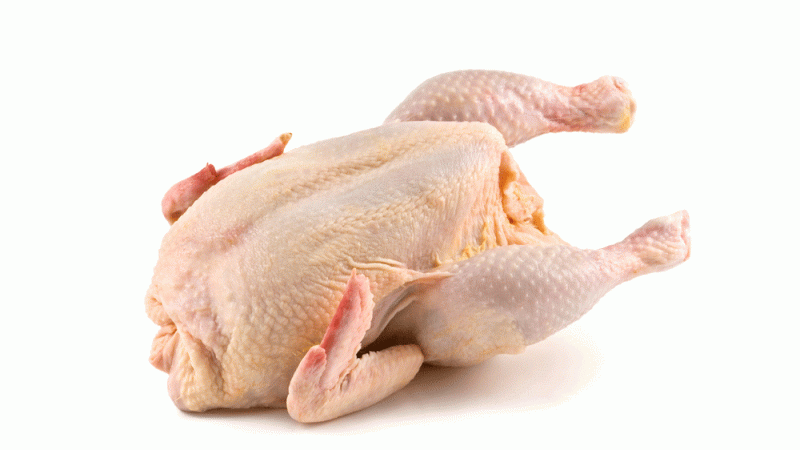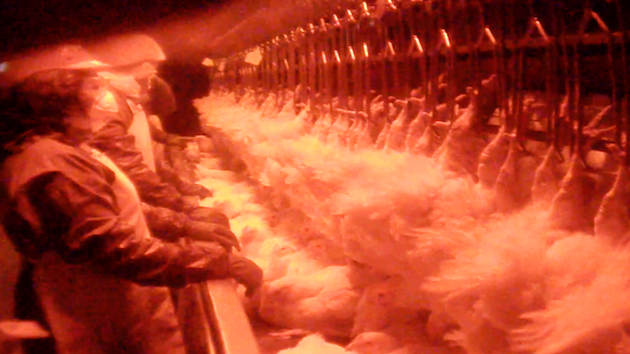
Where does the waste from this process go? <a href="http://www.shutterstock.com/pic-407590900/stock-photo-factory-for-the-production-of-chicken-meat-technological-process.html?src=hLvZ5hprV8hwIQto9ZKiWg-1-20">franz12</a>/Shutterstock
Marshall County, Alabama lies in the heart of the southeastern chicken belt—a region dotted with factory-scale farms under contract with the handful of enormous companies that dominate the US chicken industry. Data from Food and Water Watch show that Marshall and the counties bordering it churn out around 30 million chickens annually. According to an eye-popping article in the Birmingham-based weekly Weld, Marshall County also has something I’ve never heard of in my decade covering industrial agriculture: an open pond where massive processing facilities dump slaughter waste—think blood and guts—that is later sprayed onto land as fertilizer.
It’s all too common for huge livestock farms to collect manure in open cesspits (the industry’s calls them “lagoons”) that impose putrid and hazardous fumes on neighbors. Just ask the people living in Iowa’s hog-heavy Hardin County, or North Carolina’s Duplin. But storing untreated waste from a slaughterhouse in an open pit? That’s new to me—that stuff normally gets hauled to rendering plants. And according to Weld reporter Cody Owens, the situation in Marshall is unique in Alabama:
According to Marshall County District Attorney Steve Marshall, the lagoon is the only one of its kind in the state where food waste is dumped. Since the area is in an unincorporated portion of Marshall County, concerned residents have had difficulty navigating the complicated jurisdictional terrain when filing complaints and seeking injunctive relief. As Marshall put it, “Smell is a hard thing to quantify.”
As you might imagine, it’s a rather fragrant setup. Owens describes the odor as a “bitter taste of rot,” and reports it made him vomit. His long tale of nearby residents’ five-year-long, so-far futile effort to halt the practice is well worth the read.
















